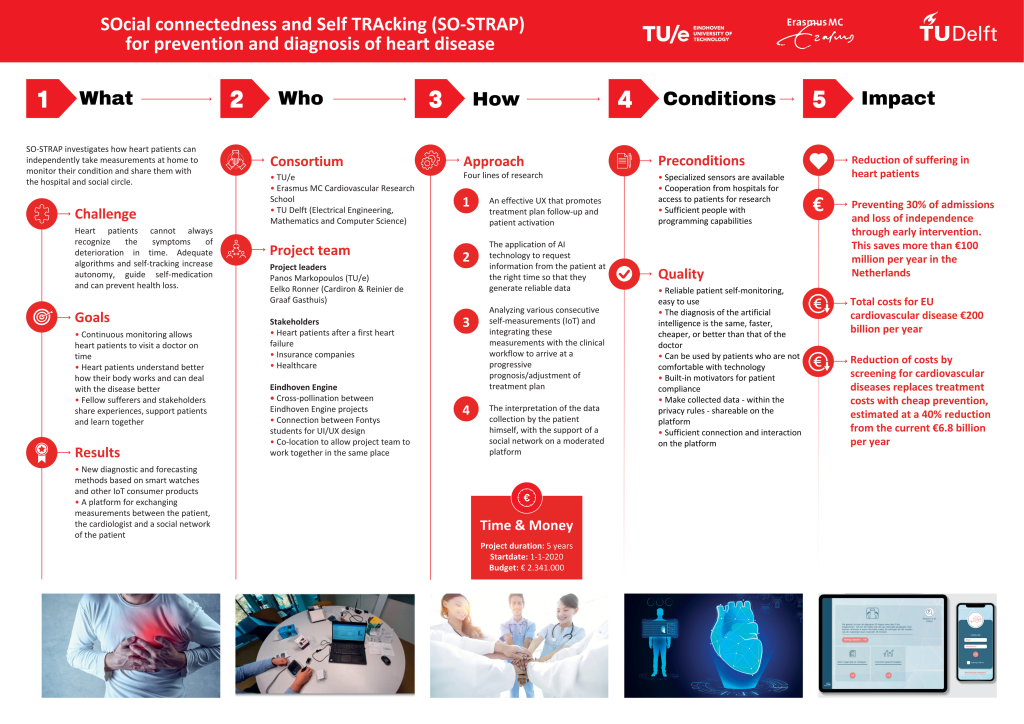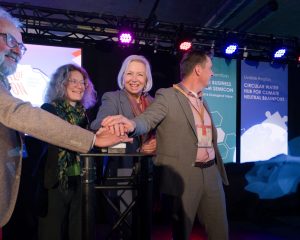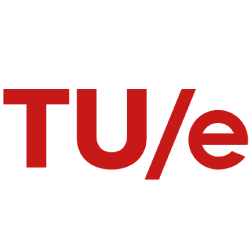- Home
- Our projects
- So-STRAP
About the project
Without changes to healthcare, heart disease may overwhelm the system within 10 to 20 years. SoSTRAP, one of Eindhoven Engine’s four OpenCall 2019 projects, aims to develop a solution: a data collection and diagnosis platform which supports behavioral changes in cardiac patients through social connectedness. This complements the NWO-funded project NWO-STRAP, which looks at AI techniques for the early prediction of heart failure deterioration. The joint aim of these projects is lower treatment costs for cardiac patients and improved cardiac care.
Combining the sources
“Suppose that somebody has had heart failure and is monitoring their condition,” says Panos Markopoulos, coordinator of So-STRAP and TU/e Professor of Design for Behavior Change. “If things get worse, one treatment is diuretics to relieve fluid congestion. Using AI, we want to see if it’s time to administer that. This is one clinical trial of the NWO project. The second looks at people who haven’t got heart disease but absorb resources by visiting the cardiology clinic for a check. Could we have good data collection at home to make their visit more efficient or handle things without a visit? These two focuses aim to improve ‘pain points’ in current cardiac care.”
As So-STRAP is working on social media within this monitoring of patients, the ambition is for both projects to become one. “Eventually,” explains Panos, “we will add social media to the various sources of data used for monitoring, such as medical instruments and IoT devices. I hope that the projects will be integrated and that our PhD students will be able to work with a whole group of people in the NWO project.”
Knowledge across disciplines
So-STRAP is needs-driven, having been started by cardiologist Eelko Ronner of Reiner de Graaf hospital on the basis of his practical experience. It also recognizes the need to involve a network of technology suppliers, which are mostly SMEs such as Cardiron, HeartSciences and Onmi. “We build on their high expertise, such as on electrocardiophy, secure data storage and transmission and gamification. This will help us provide innovative solutions that we otherwise couldn’t,” Panos notes.
This is also a crucial advantage of co-location, which allows PhD students to access knowledge from across the university. For a broad initiative like So-STRAP – which brings together electrical engineering, computer science, industrial design, data science and medicine – it also creates a better atmosphere. “You want your researchers to have an environment where they can meet peers and feel comfortable,” says Panos. “I’m hoping that the electrical engineer will meet other electrical engineers, for example. The interdisciplinary nature of the project will be helped by multidisciplinary co-location. We also hope to get synergy with similar projects involving other societal partners and experts within TU/e and the broader Brainport region.”
“From the perspective of industrial design, I hope that we can transform our field a bit. The emphasis is moving to AI and we need to learn how to deal with this. But the societal impact can also be very big: the design of a decision-making tool can be a first step towards the integration of IoT and AI techniques in daily life.”
Infographic





